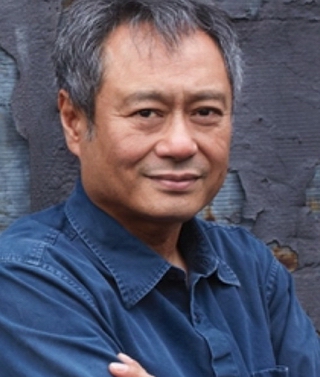
Lee, Ang |
Date of birth
23 October 1954, Chaochou, Pingtung, Taiwan
Ang Lee (October 23, 1954, Chaochou, Pingtung, Taiwan)
Born in 1954 in Taipei, he graduated from the National Taiwan College of Arts in 1975 and then went to the United States, where he studied theater directing at the University of Illinois and film production at New York University.
After winning awards in 1985 for his student work (while at N.Y.U., he also worked on Spike Lee’s acclaimed student film, Joe’s Bed-Stuy Barbershop: We Cut Heads), Lee spent the next six years working on screenplays, eventually making his directorial debut in 1992 with Pushing Hands.
A comedy about the generational and cultural gaps in a Taiwanese family in New York, it won awards in Lee’s native country.
“Things are being simplified a lot for us lately. I think people are hungry for something that shows more respect for the complexity of life, the depth, the grey areas.”
His next film, The Wedding Banquet (1993), further explored cultural and generational differences through a gay New Yorker who stages a marriage of convenience to please his visiting Taiwanese parents.
The film met with widespread acclaim, winning a Golden Bear at the Berlin Film Festival and a Best Director prize at the Seattle Film Festival, as well as Golden Globe and Academy Award nominations.
With his international reputation growing, Lee went on to make Eat Drink Man Woman (1994), his third film to focus on the theme of generational differences.
Eat Drink Man Woman proved Lee’s most critically and commercially successful film to date, winning a Best Foreign Film Oscar nomination, as well as Independent Spirit Award and BAFTA nominations.
Following this success, Lee ventured into the world of mainstream Hollywood filmmaking with Sense and Sensibility in 1995.
A fairly faithful adaptation of Jane Austen’s novel, with a screenplay written by its star, Emma Thompson, the film proved another success for the director, earning honors including a Best Picture Oscar nomination (it went on to win Best Adapted Screenplay for Thompson), a Golden Bear at the Berlin Film Festival, and a number of British Academy Awards.
Lee was voted the year’s Best Director by the National Board of Review and the New York Film Critics Circle. In 1997, the director next turned to adapting Rick Moody’s novel The Ice Storm.
The story of familial dysfunction in Watergate-era Connecticut, the film featured an impressive cast including Kevin Kline, Sigourney Weaver, Joan Allen, and Christina Ricci.
Lee brought a sober, painterly touch to the material, and his approach won him international critical acclaim.
The film won a number of international awards, including a 1997 Best Screenplay award at the Cannes Film Festival for James Schamus.
Having secured a place on Hollywood’s roster of A-list directors, Lee next tried his hand at Civil War drama with Ride With the Devil, which featured a cast of some of Hollywood’s more prominent up-and-comers, including Tobey Maguire (who had worked with Lee on The Ice Storm), Jonathan Rhys Myers, Jewel Kilcher, and Jeffrey Wright.
Lee’s next effort, Crouching Tiger, Hidden Dragon (2000), was a lavish and exciting fantasy that would eventually become the highest grossing foreign-language film ever released in the U.S.
A spectacular romantic adventure that became a phenominal international success, Crouching Tiger earned award nominations across the board, including 14 Oscar Nominations, and 16 British Academy Award Nominations.
When the smoke cleared and the winners were finally announced, Crouching Tiger earned, among others, four Oscars including Best Foreign Language Film, Best Director at the Golden Globes, and four British Academy Awards including Best Director.
Aside from simply being a breathtaking and visually extravagant adventure, Crouching Tiger, Hidden Dragon was a rare example of a subtitled film that achieved widespread stateside success.
After serving as screenwriter for the film Tortilla Soup (a Mexican-American take on Lee’s own comedy Eat Drink Man Woman), Lee raised eyebrows worldwide when he announced that he would take the helm for the long awaited live-action comic book adaptation Hulk.
The resulting film was without question one of the most brooding comic book films ever adapted to the big screen. Despite its smart use of frames and inspired use of color and transitions.
Any fears about Lee’s impact as a director were laid to rest, however, in 2005 when he directed the monumentally acclaimed Brokeback Mountain, staring Jake Gyllenhaal and Heath Ledger.
The film’s sensitive and epic portrayal of a thriving romance that survives between two Wyoming cowboys in the 1960’s was praised as both elegiac and grounded.
Lee’s deft handling of material that simultaneously drew on the established themes of classic cinema and pioneered completely unexplored territory in mass media could not have been more exalted and Lee won a Golden Globe for Best Director of a Motion Picture, as well as an Academy Award for Best Direction.
The film also picked up Golden Globe awards for Best Motion Picture Drama, Best Screenplay, and Best Original Song in a Motion Picture, and another Oscar for Best Original Score.
Selected filmography of
Lee, Ang
2012
Life of Pi (2012)
2009
Taking Woodstock (2009)
2007
Lust, Caution | Se, jie (2007)
2005
Brokeback Mountain (2005)
2000
Crouching Tiger, Hidden Dragon | Wo hu cang long (2000)
1999
Ride with the Devil (1999)
1997
The Ice Storm (1997)
1995
Sense and Sensibility (1995)
1994
Eat Drink Man Woman | Yin shi nan nu (1994)
|

